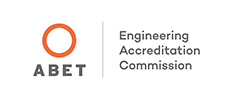On this page:
- Why Choose Biomedical Engineering?
- Careers
- Real-World Experience
- Success Stories
- Academics and Curriculum
- Admission
- Accreditation and Program Outcomes
Why Choose Biomedical Engineering?
Biomedical engineers make some of the most important medical breakthroughs. Become a part of exciting new advances in engineering and medicine.
Biomedical engineering (BME) is a dynamic field and combines traditional engineering approaches with other crucial sciences to advance technology and improve quality of life—you could be working to solve problems in biology, chemistry, or medicine. Specialized areas of BME include bioinstrumentation, biomaterials, biomechanics, medical imaging, orthopedic engineering, and systems physiology.
For students interested in a career in medicine or other post-baccalaureate health professions, biomedical engineering can prepare students with related technical skills and practical applications necessary for success.
Two separate curricula are available. The Traditional track is an ABET-accredited degree program. The Pre-Med track, in addition to being ABET-accredited, prepares students to apply for medical school or other medical/health science graduate programs.
Traditional BME Track
Biomedical engineering is concerned with solving and understanding problems in biology and medicine by using principles, methods, and approaches drawn from engineering science and technology.
Pre-Med Track
Prepares students for entrance into medical, dental, or other post-baccalaureate health professional programs.
Career Prospects
Explore the latest employment and wage data for Biomedical Engineering.
Careers
Biomedical engineers continually adapt to meet rapidly evolving requirements of the government, scientific, and medical communities. Your future employment opportunities include designing and testing artificial organs, electrical muscle stimulators, drug delivery systems, artificial joints, prosthetics, and medical imaging technologies. Wright State BME pre-med students are also prepared for entrance into medical, dental, or other post-baccalaureate health professional programs.
Want to start your own company? Biomedical engineering is a very entrepreneurial field. It is not uncommon to find a BME establishing or working for a startup company.
Our graduates are employed by:
- Akorn Pharmaceuticals
- Battelle
- Emitti
- Medtronic
- Midmark
- Norwood Medical
- NuVasive Manufacturing, LLC.
- Prosthetic Design Inc.
- Quest Global Services Riverside Research Group
- Talis Clinical
- USAFMC 711th Human Performance Wing
Our Graduates work as:
- Biomedical Engineer
- Clinical Engineer
- Design Engineer
- Field Engineer
- Medical Device R&D
- Medical Imaging R&D
- Product Development
- Research Engineer
- Sales Engineers
It's never too early—or too late, to start managing your career in engineering. Contact our Career Hub!
Real-World Experience
We encourage you to apply skills learned in the classroom through study abroad, undergraduate research, co-op/internships, and/or service learning. You will learn from qualified professionals who actively work in the field of biomedical engineering and work on biomedical engineering projects, allowing you to apply your classroom education to real-world situations.
Success Stories
Academics and Curriculum
Wright State has two BME curricula: traditional and pre-med. Both programs are ABET-accredited and the pre-med program also prepares students to take the MCAT or other entrance exam required for post-baccalaureate study.
View the Bachelor of Science in Biomedical Engineering program information, degree requirements, and graduation planning strategy in the Academic Catalog.
Admission
Review the admission requirements and complete the admission application. Identify your desired major on the application. If you meet university admission requirements you are admitted to the college.
If you are a current student and wish to change majors, submit a Major/Minor Change Request by logging in to WINGS, then select Student Academics under Your Launchpad. If you are an undecided/exploratory student, talk to your advisor about majoring in biomedical engineering.
Accreditation and Program Outcomes
The Bachelor of Science program in Biomedical Engineering is accredited by the Engineering Accreditation Commission of ABET, www.abet.org, under the General Criteria and the Program Criteria for Bioengineering and Biomedical and Similarly Named Engineering Programs.

ABET Accreditation
Annual Student Enrollment: 63 in Fall 24
Graduation Data: 12 Summer 23- Spring 24
Program Educational Objectives:
The Program Educational Objectives (PEOs) of the BS in Biomedical Engineering program are for the graduates to attain the following within a few years of graduation. Our graduates:
- Have worked successfully in an engineering or related field, leading to advancement and opportunities for greater responsibility or increased level of skill.
- Have expanded their knowledge and capabilities by adapting to evolving technology and workforce needs through sustained learning applicable to the discipline through self-study, professional training programs, and graduate education.
- Have created engineering solutions and put engineering principles into practice, while successfully leading, managing, or working in diverse and cross-functional teams.
- Have demonstrated ongoing consideration of engineering work ethics and professionalism consistent with societal and environmental needs.
- Inspire and serve as mentors for the next generation of engineers
Student Outcomes:
The following student outcomes of the biomedical engineering program will prepare graduates to attain the program educational objectives:
- an ability to identify, formulate, and solve complex engineering problems by applying principles of engineering, science, and mathematics
- an ability to apply engineering design to produce solutions that meet specified needs with consideration of public health, safety, and welfare, as well as global, cultural, social, environmental, and economic factors
- an ability to communicate effectively with a range of audiences
- an ability to recognize ethical and professional responsibilities in engineering situations and make informed judgments, which most consider the impact of engineering solutions in global, economic, environmental, and societal contexts
- an ability to function effectively on a team whose members together provide leadership, create a collaborative and inclusive environment, establish goals, plan tasks, and meet objectives
- an ability to develop and conduct appropriate experimentation, analyze and interpret data, and use engineering judgment to draw conclusions
- an ability to acquire and apply new knowledge as needed, using appropriate learning strategies
